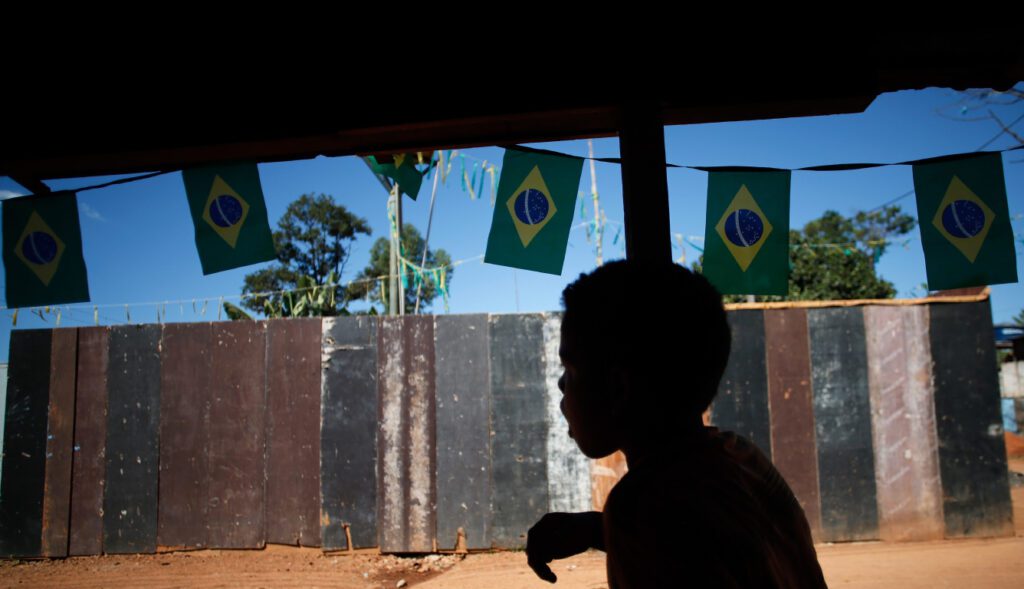Brazil has seen a surge in the number of foreign nationals and women rescued from forced labor conditions, a form of human trafficking also known as modern slavery, according to a new report.
The annual human trafficking report from the Ministry of Justice and Public Security (Ministério da Justiça e Segurança Pública) also highlights the rise of invisible trafficking networks, such as illegal adoption and forced criminal recruitment and their modus operandi.
The publication from Brazil’s government covers the evolution of the human trafficking economy between 2021 and 2023.
Modern Slavery in Brazil
More and more foreigners trapped into modern slavery are being rescued in Brazil. In 2021, 77 cases were recorded, and that almost doubled in 2022 with 148 cases. 130 were reported in 2023.
Most of the victims rescued in the last three years were Paraguayans (228), followed by Venezuelans (64) and Bolivians (44). This type of trafficking is also the most registered in Federal Police data, and the victims are frequently exploited in the agricultural sector.
“We have found more Argentines and Paraguayans, mainly Indigenous, on the border with Mato Grosso Sul … And many of these Indigenous Paraguayans end up coming here and becoming victims of slave labor in soybean cultivation in the Mato Grosso do Sul region,” said an official in charge of assisting victims quoted in the report.
Unlike its neighbors, the majority of human trafficking victims identified in Brazil are men, tricked into labor exploitation. But the predicament of many women is also of concern.
Exploitation of Women in Domestic Work
The number of registered cases of forced domestic labor increased in this period. Victims were predominantly female, with Black women being the most vulnerable.
This type of exploitation preys on cultural norms and the economic needs of women, who in some cases are forced to work for the same family from when they are children. The increase in the number of cases reflects, among other factors, better techniques for identifying and investigating these cases, which increased from two in 2018 to 36 in 2023, according to the report.
SEE ALSO: Brazil Sex Traffickers Brought Down by Cloned Credit Card
Of the 248 employers on a list of companies identified by the Secretary of Labor Inspection (la Secretaría de Inspección del Trabajo) for using slave labor, 43 were domestic work cases and surpassed offenders in agricultural industries such as coffee (27), livestock (22), coal production (16), and construction (12). Although the effectiveness of the use of the list has been questioned, the change reflects the importance of this type of human trafficking within the country.
Illegal Adoption
Illegal adoption, also known as “Brazilian-style adoption” (“adoção à brasileira”) represented 9% of the trafficking cases registered by the Federal Police, and was the most common form of human trafficking represented in state courts (60 cases) between 2021 and 2023, according to data in the report. However, it is a form of human trafficking that can be hard to detect because of the difficulty in proving cases, and a lack of communication between child protection networks and institutions charged with combating human trafficking, the report states.
In one case, a man from Portugal trafficked at least three minors from Brazil to that country through contacts in Facebook groups. Once the babies were born, he would register them in his name and then request a passport and joint custody to take them to Europe. The man had a network of contacts in both countries, including lawyers and intermediaries who took the women in before they gave birth.
At the national level, adoption cases are strongly connected to human trafficking for labor exploitation in domestic work. In recent years, authorities have recorded cases of women who were “adopted” by families who then forced them to work from the age of seven or eight.
Forced Criminality
Forced criminal recruitment is a fairly new type of human trafficking in Brazil and internationally. Brazil has no legislation with which to prosecute it, which is key to avoid criminalizing the victims.
This type of trafficking usually affects women, and victims are people in dire financial need or individuals forced through threats to traffic drugs outside the country who are subsequently arrested and convicted for that crime. But it does not just include people forced to traffic drugs across the country’s borders.
SEE ALSO: Illegal Cigarettes Produced with Slave Labor in Brazil
On other occasions, people were forced to work in clandestine factories. In March 2023, authorities rescued 19 Paraguayans in a secret cigarette factory in the municipality of Duque de Caxias in Rio de Janeiro, allegedly run by a militia. In 2022, a similar operation in the same area resulted in the rescue of 23 Paraguayans and a Brazilian.
The scope of this type of exploitation goes beyond Latin America. In 2022, the Brazilian Justice Ministry claimed that at least 100 people were allegedly trafficked to Cambodia and forced to participate in cyber crime.
Featured image: Illegal adoptions made up 9% of human trafficking cases registered in Brazil in the last few years. Credit: AP
Source link : http://www.bing.com/news/apiclick.aspx?ref=FexRss&aid=&tid=671676fab3814b96b7280092301d7fa6&url=https%3A%2F%2Finsightcrime.org%2Fnews%2Fforeigners-women-increasingly-victims-human-trafficking-brazil-report%2F&c=13259601188357522757&mkt=en-us
Author :
Publish date : 2024-10-21 02:55:00
Copyright for syndicated content belongs to the linked Source.
